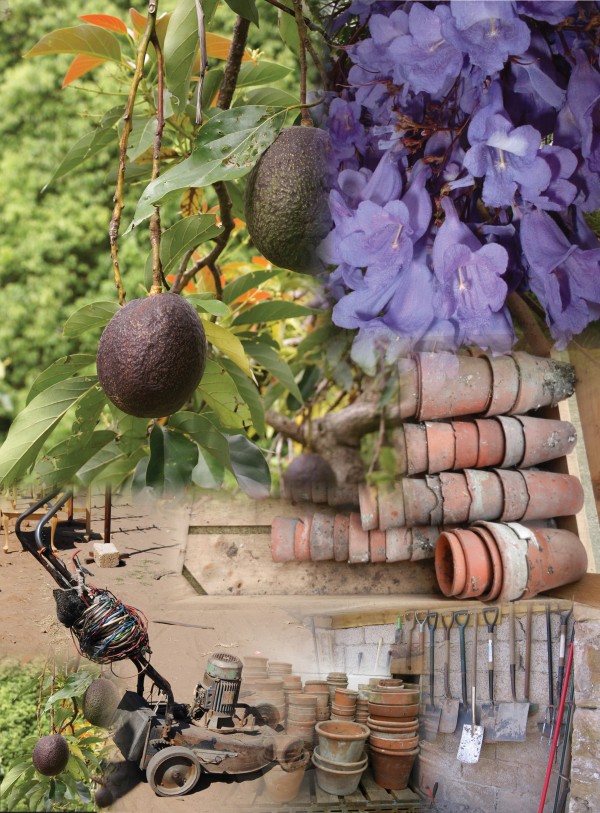
 Have you noticed it yet? I saw a jacaranda in full bloom last week. The September lilies are over. The amaryllis that normally flower in October are already in bud. Avocados need the rainy season to swell and ripen their fruit so that they are harvested in March, April and May. But my avocado tree is laden with small shiny green fruit much too soon and I doubt whether they will survive the long hot dry weeks to come. Other avocados have mature fruit on some branches and immature fruit on others. Plants are very sensitively programmed to respond to specific triggers in the weather, especially to temperature changes and the length of daylight. That is why many plants flower in the dry weeks before the rains arrive, especially plants like the jacaranda that flower before new leaves appear. The timing of the seasons in the plant world has gone haywire – and we gardeners can do nothing about it, I fear.
Have you noticed it yet? I saw a jacaranda in full bloom last week. The September lilies are over. The amaryllis that normally flower in October are already in bud. Avocados need the rainy season to swell and ripen their fruit so that they are harvested in March, April and May. But my avocado tree is laden with small shiny green fruit much too soon and I doubt whether they will survive the long hot dry weeks to come. Other avocados have mature fruit on some branches and immature fruit on others. Plants are very sensitively programmed to respond to specific triggers in the weather, especially to temperature changes and the length of daylight. That is why many plants flower in the dry weeks before the rains arrive, especially plants like the jacaranda that flower before new leaves appear. The timing of the seasons in the plant world has gone haywire – and we gardeners can do nothing about it, I fear.
Winter is a sensible time to check all your garden tools and equipment and generally sort out the tool shed. Throw out old seeds. Replace ancient secateurs with sharp new ones. Get rid of fertilisers, insecticides and herbicides (if you use them) that are past their sell-by date. Check the blades on the lawn mower. Get the petrol lawn mower serviced. Look at the compost heap. Is it neatly contained and deep enough (at least 1 metre) to decompose? Are you making the compost your garden deserves? Check that the centre of the heap is damp and WARM. The warmth shows that it is decomposing happily. If it is cold it has to be turned over in order to shake out any clumps and aerate the material. The micro-organisms that busily change your kitchen and garden waste into beautiful crumbly dark brown compost need oxygen. The process is slower in the colder weather so allow two to three months at this time of year. Organise a sieve made of 2 – 3 cm metal mesh on legs like a table. Sieve compost for use in seedbeds or pots. The coarser pieces can be used as mulch. Last but not least, inspect your hosepipes for leaks and see if your sprinklers are still in good working order.
Pots are another story. Line up all your unused pots with their saucers and decide what to do with them. Do you really need all of them? Wash them and rinse with diluted Jeyes Fluid to ensure they are really clean and fit to use again. Use your sieved compost and plant something in the pots, stack a few in the tool shed, and give the rest away. This would be a good time to prepare some painted pots with plants to give at Christmas as a special gift. Here is a quick list of possible choices: begonia, maidenhair fern, ficus benjaminii (variegated if possible), epidendrum orchids (easy to care for), maranta, and any herbs such as thyme or fennel.
While you are at it, you might as well check the garden furniture. Wooden benches need treating once a year with linseed or teak oil to preserve the wood. Any thatched roofs can be renovated or re-thatched. I can recommend John Phiri 0977 175-201.

Leave a Reply
You must be logged in to post a comment.